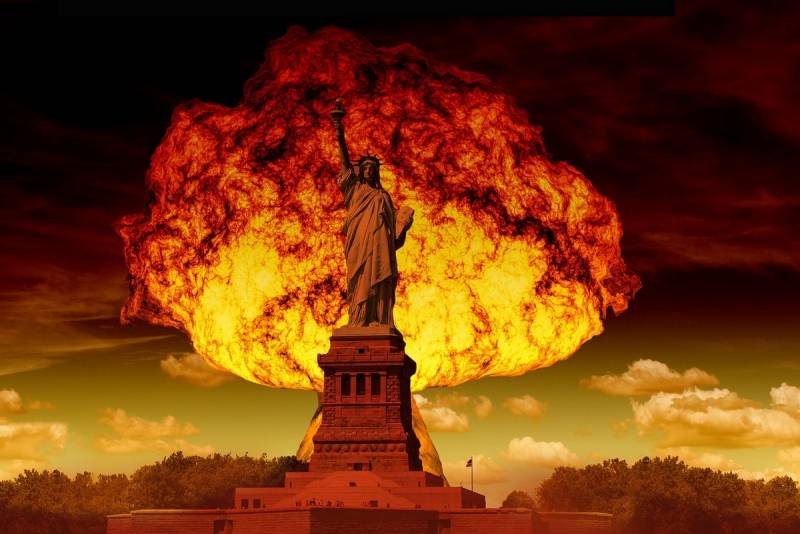Bloomberg advises Americans on the best place to hide from nuclear war
All sorts of mythical catastrophes are impossible, it is necessary to be afraid of the man-made, man-made doomsday. We are talking about a major and extremely cruel event, for example, a nuclear war. The possibility of a nuclear exchange is now higher than it has been for decades. Thus, for every American, the question arises, where is the best place to hide and wait out. Bloomberg columnist Tyler Cowan advises on this matter.
For those who fear this development, the author has a paradoxical answer: anyone living in a densely populated urban area needs to stay there, especially if it is a suburb of the capital in Washington, DC. And this despite the fact that the capital is likely to be attacked first, adds the columnist.
The biggest advantage of the Washington region is that in the event of a real disaster, it will receive more direct assistance. It's not just that Congress and the White House are nearby, but the Pentagon, the FBI, the CIA, and hundreds, if not thousands, of government agencies. Because there may be an emergency response to a catastrophic event, priority will be given to the Washington area.
You can, of course, grab a shotgun and hide in a sparsely populated area of the American West, but this will only help against marauders
- Tyler Cowan writes not without sarcasm, deciding to combine all the fears of Americans in one article.
However, further on he writes more seriously that when modeling a real situation, it is worth remembering that the conflict will develop so quickly that, in principle, it will not matter where to go.
But I'd rather stay with society than less people
– continued the author.
Another common answer to the question of where to hide is to leave the US entirely and buy a second home or bunker in New Zealand. This state has several big advantages: it is relatively safe, has plenty of water, and can be self-sufficient in agriculture and food. Its relative isolation could be of real benefit if there was an exchange of nuclear strikes, the author of Bloomberg believes.
It can be argued that panic among Americans began to be artificially fomented, based on nothing, exploiting fears, especially those that are innate for the older generation of US residents.
- pixabay.com

Information